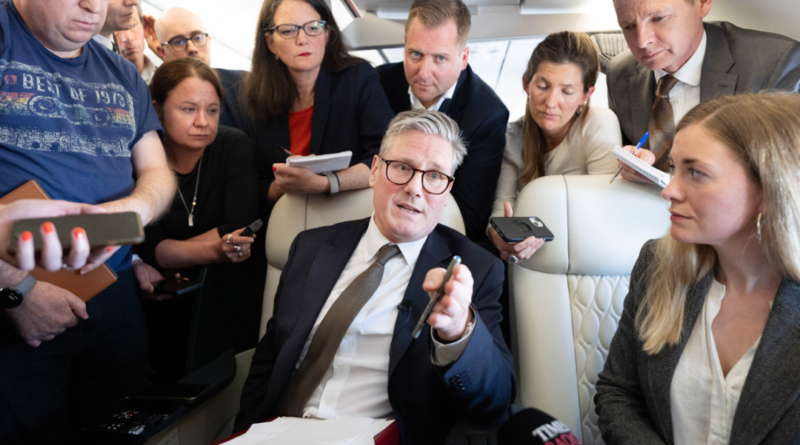Starmer Refuses to Provide a Timeline for 2.5 Percent Defence Spending
The prime minister has issued an order for a comprehensive Strategic Defence Review starting next week to assess the UK’s security and defence capabilities.
Prime Minister Sir Keir Starmer has refrained from providing a timeline for when the UK will meet his government’s firm commitment to increase defence spending to 2.5 percent of GDP.
“We are firmly committed to the 2.5 percent, as I stated before the election and reiterate after the election. This commitment is subject to our fiscal regulations, but the dedication remains,” he stated.
Prior to his journey, the government reiterated the UK’s unwavering pledge to allocate 2.5 percent of GDP to defence spending.
Both the Labour and Conservative parties prioritized increasing defence spending to 2.5 percent of GDP in their campaigns leading up to the July 4 general election. Former Prime Minister Rishi Sunak set a 2030 deadline to hit the target, with an estimated total cost of £75 billion over the next six years.
‘Root-and-Branch’ Defence Review
Sir Keir indicated that decisions on meeting the target will be guided by an assessment of the UK’s security and defence capabilities.
The prime minister announced the initiation of a “root-and-branch” Strategic Defence Review, supervised by Defence Secretary John Healey.
He confirmed on Tuesday: “The strategic review will take place, that will happen next week, and we will set out the details of that.
“The manifesto commitment was that it would take place within a year, I would like it to be quicker than that if I’m honest and we’ll set out the details about how we are going to do it.”
In a statement, Foreign Secretary David Lammy said that the Strategic Defence Review will concentrate on threats such as Russia’s invasion of Ukraine, instability in the Middle East, and “the rise of authoritarian countries.”
Military ‘Hollowed Out’
The review will involve devising a new defence industrial strategy and evaluating the structure of the armed forces, including their combat readiness.
The “hollowing out” of the military since 2010 had undermined the country’s warfighting resilience, the committee’s inquiry revealed, warning that the armed forces would deplete their capabilities “after the first couple of months of the engagement” in a peer-on-peer war.

NATO Allies
The prime minister, foreign secretary, and defence secretary are currently in Washington to join NATO leaders in commemorating the alliance’s 75th anniversary.
The alliance agreed in 2014 to aim for spending 2 percent on defence following Russia’s annexation of Crimea and in reaction to escalating instability in the Middle East.
Over the years, some members have fallen short of this target, drawing criticism from former President Donald Trump during his term for depending too heavily on major contributors like the United States.
Mr. Stoltenberg stated in a speech on Tuesday: “The language in the declaration we agreed 10 years ago was that we should strive towards reaching 2% of GDP for defence. And that has made a big difference.”
“Now we have changed that language to say that 2% is a minimum. So 2% is no longer some kind of ceiling but 2% is now the floor for our defence spending. So we’re not complacent, it’s not good enough what we do now, so we will do more.”
PA Media contributed to this report.





